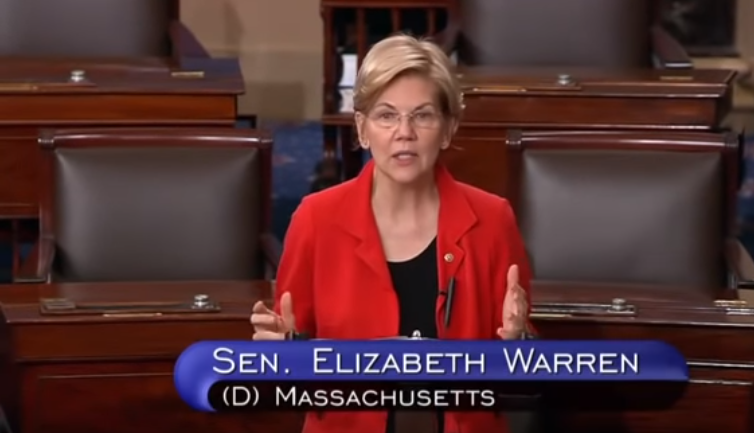The following is a media release from Sen. Elizabeth Warren’s office. She was elected by voters in the Commonwealth of Massachusetts to serve the state in Washington DC in the US Senate. She is a Democrat. She is also running to be the Democratic nominee for president.
***
[broadstreet zone=”51611″]
WASHINGTON DC – Today, March 4, United States Senators Elizabeth Warren (D-Mass.) and Tom Carper (D-Del.) applauded the signing of the bipartisan Presidential Transition Enhancement Act, which includes major provisions of the Transition Team Ethics Improvement Act, into law.
The Transition Team Ethics Improvement Act was introduced by Senators Warren and Carper and the late Representative Elijah Cummings (D-Md.), and will enhance the ethics requirements that govern presidential transitions.
[broadstreet zone=”52093″]
Senators Warren, Carper, and former Chair Cummings introduced the Transition Team Ethics Improvement Act to ensure that the government is focused on the public interest during transitions from one presidential administration to the next, not just on the issues raised by special interest lobbyists.
The bicameral bill was also included in the For the People Act of 2019 (H.R.1) — House Democrats’ first piece of legislation introduced in the 116th Congress that includes proposals related to voting and election laws, campaign finance, redistricting, and Executive Branch ethics requirements.
[broadstreet zone=”70107″]
“The Trump transition team was absolutely awash in conflicts and corruption, and today, the American people can celebrate new rules to ensure that never happens again. This new law will stop the wealthy and well-connected from reaping the benefits of presidential transitions and pulling the strings of power in Washington to their own benefit. I’m proud to have partnered with Senator Carper and am deeply grateful to my friend, the late Chairman Elijah Cummings, who worked hard to champion these basic ethics rules. I know he would be proud today,” Senator Warren said.
[broadstreet zone=”58610″]
“It’s just common sense that the individuals running for the highest office in our land should be required to address any ethical issues before they take the oath of office. That’s not a partisan issue; it’s a good government policy that is necessary for a healthy democracy,” said Senator Carper. “Regardless of their political party, presidential candidates and their transition teams should disclose how they will address their own conflicts of interest before the election and develop an ethics plan that the American people are able to see and evaluate. Today, I’m proud that my bill to provide more accountability and transparency in presidential transitions by helping new administrations address potential conflicts of interest, improving the vetting process for nominees and preserving the integrity of our executive branch has been signed into law. My friend Chairman Cummings worked hard on this important bill, and I know that he would be proud that it now stands as the law of the land.”

The federal government provides presidential transition teams with financial support and access to executive agencies, non-public documents, and other resources. Despite their public support and level of access, transition team members are not required to comply with federal ethics laws, including those regarding conflicts of interest, because they are not categorized as federal government employees.
Although recent presidents-elect have adopted ethics plans, the law does not require it.
The Presidential Transition Enhancement Act specifically would:
- Require eligible presidential candidates to develop and release transition team ethics plans and disclose how they will address their own conflicts of interest before the election. These disclosures will be required by no later than October 1st, providing the public with the opportunity to assess candidates’ ethics plans prior to a general election;
- Require transition team members to sign an ethics-specific code of conduct; and
- Establish a set of minimum requirements for transition team ethics plans, including information about how the transition team will enforce a code of ethical conduct and address the role of domestic and foreign lobbyists on transition teams.

